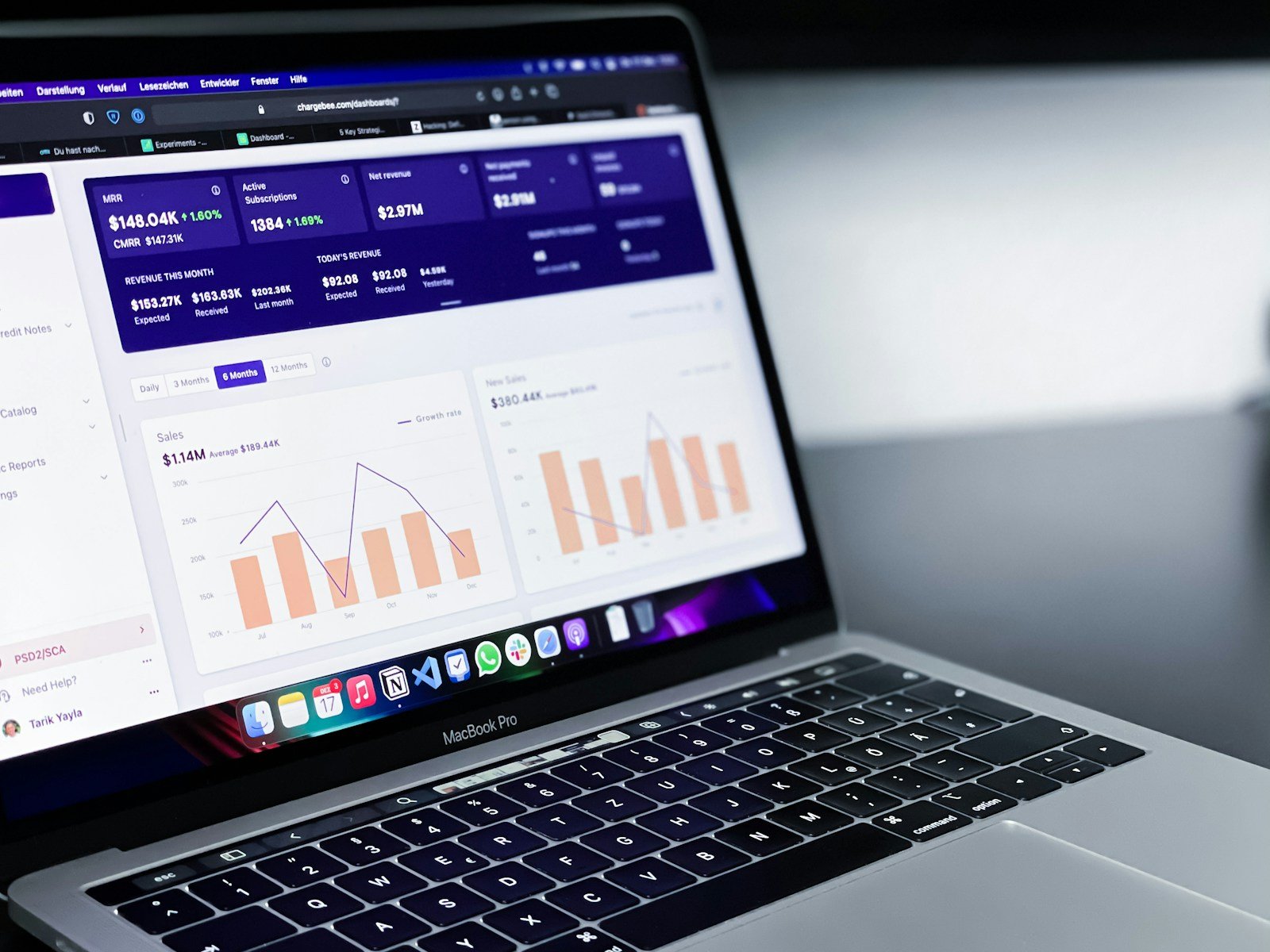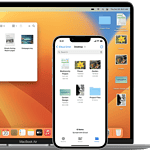Social media reporting tools help businesses track how well their online posts are working. They show important numbers like how many people see and click on posts. These tools save time by putting all the data from different social media sites in one place. This makes it easier to see what’s working and what’s not.
Good social media reports can help businesses make smarter choices about what to post. They show which posts get the most likes and shares, and which ones lead to sales. With the right tools, even small companies can learn a lot about their fans and make better plans for reaching them.
Social media reporting is no longer just about counting likes and followers—it’s about measuring ROI, tracking engagement trends, benchmarking against competitors, and making data-driven decisions. In 2025, the best tools combine cross-platform analytics, automated reporting, AI-driven insights, and competitor benchmarking.
Below is a curated list of the top social media reporting tools in 2025, their strengths, and best use cases.
1. Sprout Social
- Best for: All-in-one reporting & enterprise teams
- Features:
- Cross-platform analytics (Facebook, Instagram, TikTok, LinkedIn, X/Twitter, YouTube, Pinterest)
- Automated scheduled reports
- AI-driven sentiment analysis
- Competitor benchmarking
- Why it stands out: Sprout Social is one of the most comprehensive platforms, trusted by large brands for its robust reporting dashboards and team collaboration tools.
2. Hootsuite Analytics
- Best for: Multi-channel management + reporting
- Features:
- Unified dashboard for all major platforms
- ROI and conversion tracking
- Customizable, branded reports
- Team performance metrics
- Why it stands out: Hootsuite has evolved into a reporting powerhouse, offering executive-ready reports and integrations with Google Analytics for deeper ROI analysis.
3. DashThis
- Best for: Agencies & client reporting
- Features:
- Drag-and-drop report builder
- White-label client reports
- Integrations with Google Analytics, Ads, and social platforms
- Automated email delivery
- Why it stands out: DashThis is a favorite among marketing agencies thanks to its easy-to-read reports and client-friendly dashboards.
4. Metricool
- Best for: Small businesses & content creators
- Features:
- Real-time analytics across social and web
- Competitor tracking
- Paid ads performance monitoring
- Affordable pricing tiers
- Why it stands out: Metricool is simple yet powerful, making it great for creators, freelancers, and small businesses that need actionable insights without enterprise-level costs.
5. Brandwatch (formerly Falcon.io)
- Best for: Advanced analytics & social listening
- Features:
- Deep audience insights
- AI-powered sentiment and trend tracking
- Competitor benchmarking
- Custom dashboards
- Why it stands out: Brandwatch excels at social listening + reporting, making it a strong choice for brands that need market intelligence in addition to performance analytics.
6. Buffer Analyze
- Best for: Simplicity & startups
- Features:
- Easy-to-understand engagement metrics
- Custom reports for campaigns
- Affordable pricing
- Why it stands out: Buffer keeps reporting simple and visual, perfect for startups or small teams that don’t need complex enterprise dashboards.
7. ContentStudio
- Best for: Content strategy + reporting
- Features:
- Multi-channel analytics
- AI-powered insights
- Competitor benchmarking
- Automated reports
- Why it stands out: ContentStudio combines content planning with reporting, making it ideal for teams that want strategy + analytics in one tool (source: ContentStudio).
8. Google Looker Studio (with social integrations)
- Best for: Custom, data-driven reports
- Features:
- Connects with Facebook, Instagram, TikTok, LinkedIn, YouTube via connectors
- Highly customizable dashboards
- Free to use
- Why it stands out: Looker Studio is perfect for data-savvy marketers who want fully customizable reports that combine social data with web, ads, and CRM insights.
🔑 Key Takeaways
- For enterprises: Sprout Social, Brandwatch, Hootsuite
- For agencies: DashThis, ContentStudio
- For small businesses/creators: Metricool, Buffer
- For custom reporting: Google Looker Studio
👉 The best choice depends on whether you need client-ready reports, deep analytics, or simple performance tracking.
1. Sprout Social Analytics
Sprout Social offers powerful social media analytics tools that help brands understand their online performance. These tools provide deep insights into what resonates with customers and help prove the return on investment for social media efforts.
The platform tracks important metrics across multiple social networks in one place. Users can easily monitor engagement, reach, and audience growth without switching between different websites.
Sprout’s reporting tools make it simple to share results with team members and clients. The custom social media reports can be scheduled and automatically sent to stakeholders, saving time and ensuring everyone stays informed.
One standout feature is Sprout’s Advanced Listening tool. It provides valuable data about audience demographics, industry influencers, and campaign performance. This helps brands stay ahead of trends and make smart marketing decisions.
The analytics dashboard presents information in easy-to-understand charts and graphs. Marketing teams can quickly spot patterns and adjust their strategies based on what the data shows.
Sprout Social helps businesses track mentions across social platforms. This allows companies to respond to customer feedback faster and manage their online reputation more effectively.
Competitive analysis features let brands compare their performance against others in their industry. This helps identify gaps and opportunities for growth in social media strategies.
The platform offers a 30-day free trial so companies can test its reporting capabilities. This gives teams time to explore how the analytics tools might improve their social media management.
Sprout ranks as one of the best social media monitoring tools in 2025. Its comprehensive approach to tracking, analyzing, and reporting makes it a top choice for businesses serious about social media success.
2. Hootsuite Insights
Hootsuite Insights offers powerful social media analytics that help businesses track their online performance. This tool goes beyond basic metrics to provide deep understanding of social media campaigns.
With Hootsuite Insights, companies can monitor brand mentions across multiple platforms in real time. The system catches conversations about your brand even when you’re not tagged directly.
The platform includes comprehensive analytics that show data from all your social accounts in one dashboard. This saves time and makes reporting simpler for busy marketing teams.
Teams can track important metrics like engagement, reach, and follower growth. The tool also measures sentiment analysis to show if conversations about your brand are positive, negative, or neutral.
Hootsuite Insights connects social media efforts to business results. The advanced analytics features help track revenue, leads, and conversions from social campaigns.
Companies can also use competitive analysis to see how they stack up against others in their industry. This helps identify gaps and opportunities in social media strategy.
Custom reports make sharing results with stakeholders easy. Teams can create reports showing the metrics that matter most to their business goals.
The Industry Benchmarking feature provides wider context for your performance. It helps companies understand if their results are good compared to industry standards.
Hootsuite Insights works with major social networks including Facebook, Instagram, Twitter, LinkedIn, and YouTube. This wide coverage ensures no important data gets missed.
The tool offers real-time alerts when there are significant changes in metrics or brand mentions. This helps teams respond quickly to both opportunities and problems.
Many social media professionals consider Hootsuite Analytics one of the best tools available for comprehensive social media measurement.
3. Buffer Analyze
Buffer Analyze is a social media analytics tool designed to help marketers track and improve their social media performance. It offers a clean, user-friendly dashboard that makes complex data easy to understand.
With Buffer Analyze, you can monitor both account and post-performance across different platforms. This tool helps you see what content works best with your audience and when to post for maximum engagement.
The platform provides data-driven insights that can guide your social media strategy. These insights help you make better decisions about what to post and when.
One of the standout features is the ability to create custom reports. You can combine data from multiple channels to get a complete picture of your social media presence.
Buffer Analyze also lets you track your audience growth and engagement over time. This helps you measure the success of your campaigns and adjust as needed.
The tool works well for brands, businesses, agencies, and individuals. It’s part of Buffer’s larger suite of social media management tools.
Users praise Buffer Analyze for improving their decision-making process. The clear presentation of data makes it easier to spot trends and opportunities.
The analytics focus on meaningful metrics rather than overwhelming you with numbers. This approach helps even beginners understand their performance.
Buffer Analyze fits well with other Buffer products if you already use them for posting or scheduling. This integration creates a smoother workflow for managing social media.
For marketers looking to prove ROI, the reporting features are particularly valuable. You can show clients or managers exactly how your social strategies are performing.
As one of the top social media analytics tools, Buffer Analyze stands out for its balance of power and simplicity. It gives you the data you need without requiring a statistics degree to understand it.
4. Google Analytics for Social
Google Analytics is a free tool that helps track website visitors from social media. It shows which platforms bring the most traffic to your site and what visitors do after they arrive.
Google Analytics 4 (GA4) provides detailed insights about your social media performance. You can see which posts drive the most traffic and which social channels lead to actual sales or sign-ups.
Setting up GA4 is simple. Once installed on your website, it automatically tracks visitors from Facebook, Twitter, Instagram, and other platforms. This helps you understand which social networks deserve more of your marketing budget.
The dashboard shows important numbers like bounce rate, time on page, and conversion rate. These tell you if visitors from social media find your content useful or if they leave quickly.
One big advantage is the ability to create custom reports. You can build specific views that focus only on your social media traffic and the actions these visitors take.
GA4 helps understand the customer journey from first click to final purchase. This matters because social media visitors often browse multiple times before buying anything.
The tool also reveals which content topics perform best with your social audience. This helps guide your content strategy and shows what your followers actually care about.
You can compare different time periods to see if your social strategy is improving. For example, check if this month’s Instagram traffic is better than last month’s.
GA4 connects with other Google tools like Google Ads and Search Console. This creates a complete picture of how social media fits into your overall marketing plan.
Companies can create social media dashboards with Google Analytics to make reporting easier. These dashboards put all important social metrics in one place for quick review.
The best part is that Google Analytics is completely free, making it accessible to businesses of all sizes. While premium social tools cost hundreds of dollars monthly, GA4 offers solid insights at no cost.
5. Zoho Social Reports
Zoho Social offers powerful social media analytics software designed for businesses and agencies. The platform helps users identify which posts perform well, create detailed reports, and measure brand performance across different social media channels.
With Zoho Social, users can schedule unlimited posts while monitoring important metrics. The tool allows for custom report creation to analyze social media performance in detail, giving businesses clear insights into what works and what doesn’t.
The reporting features help teams understand audience preferences and engagement levels. Users can track post performance and even analyze competitors’ strategies with just a few clicks using Zoho Analytics integration.
Social listening is another key feature that sets Zoho Social apart. The platform acts as your digital eyes and ears by enabling hashtag research and keyword analysis to stay on top of industry trends and conversations.
Teams can use these reports to make data-driven decisions about content strategy. The visual dashboards make it easy to spot patterns and trends without needing advanced technical skills.
Zoho Social Reports work well for both small businesses and larger agencies managing multiple client accounts. The platform keeps everything organized in one place, eliminating the need to jump between different tools.
Users appreciate the clean interface and straightforward reporting options. The system allows for scheduled reports to be automatically sent to team members or clients, saving time on manual updates.
The tool integrates seamlessly with other Zoho products, creating a unified workspace for marketing teams. This connection makes it easier to link social media performance to broader business goals and outcomes.
6. Keyhole Tracking
Keyhole offers powerful social media tracking tools that help brands monitor their online presence. This social media analysis tool works across multiple platforms including X (formerly Twitter), Instagram, Facebook, YouTube, LinkedIn, and TikTok.
The platform provides real-time data, making it easier to track social campaigns as they happen. Users can see exactly how their content performs without waiting for delayed reports.
Keyhole stands out with its social listening capabilities. The tool tracks mentions, hashtags, and keywords across social networks, giving brands insight into what people say about them online.
For marketing teams, Keyhole creates real-time reports and live dashboards that display essential metrics. These visual representations help teams understand complex data quickly and make informed decisions.
The platform also excels at influencer tracking. Companies can identify and monitor influential accounts in their industry, making partnership decisions based on actual performance data.
Keyhole helps marketers prove their impact through comprehensive analytics. The tools measure engagement, reach, and other key performance indicators that show the value of social media efforts.
Many brands, agencies, and institutions choose Keyhole to streamline their social media management. The platform simplifies monitoring multiple accounts and campaigns from one central dashboard.
The tool’s user-friendly interface makes it accessible for both small businesses and large enterprises. Even team members without technical expertise can navigate the system and pull the data they need.
Keyhole’s tracking features help users spot trends and opportunities they might otherwise miss. These insights can spark new content ideas or highlight issues that need attention.
For teams focused on ROI, Keyhole connects social media activities to business results. This connection helps justify social media spending and guides future strategy decisions.
7. BuzzSumo Metrics
BuzzSumo offers powerful metrics that help brands track content performance across social media platforms. This tool stands out by showing which content gets the most engagement and shares.
The content engagement analysis features let you see how your posts perform compared to competitors. You can easily spot trends and find what content types work best for your audience.
One key metric is social shares tracking. BuzzSumo counts shares across Facebook, Twitter, Pinterest, and other platforms to show what content resonates with readers.
Brand mentions tracking is another useful feature. The tool monitors your competitors, brand mentions, and industry updates so you never miss when someone talks about your company online.
Content research is a core strength of BuzzSumo. Users can search any topic and see the most shared content related to it. This helps in planning future content that’s likely to succeed.
Alert functions ensure you catch important events quickly. These alerts ensure you catch important events without getting lost in too much data.
While not strictly a social media reporting tool, BuzzSumo excels as a resource for analyzing social engagement for any content piece. This makes it perfect for content marketers who need social proof.
The platform describes itself as providing “media mentions in minutes and content ideas for days.” This reflects its dual purpose of monitoring and inspiring new content strategies.
For social media managers, BuzzSumo helps answer key questions: What content performs best? Who shares your content? When is the best time to post? These insights drive better strategy decisions.
The metrics dashboard is clean and easy to understand. Charts and graphs show engagement trends at a glance, saving time on analysis.
8. Sendible Reports
Sendible offers powerful social media reporting tools that help marketers track their performance across platforms. The Reporting Hub lets users get engagement overviews with just one click, saving valuable time.
Teams can create custom reports that match their brand’s look and feel. This feature helps agencies impress clients with professional-looking data presentations that are easy to understand.
One standout feature is the ability to automate reporting. Users can schedule reports to be sent to clients or team members at set times, reducing manual work and ensuring everyone stays informed.
Sendible pulls data from multiple social platforms into one place. This makes it much easier to compare performance across different channels without switching between various tools.
The Engagement Report feature organizes key metrics in a clear format. Users can quickly spot trends and make smart decisions about their social media strategy.
For agencies managing multiple clients, Sendible’s reporting tools are especially helpful. They allow for creating separate reports for each client while maintaining a consistent workflow.
The system provides in-depth insights that teams can use to improve their content. By analyzing what works best, marketers can focus their efforts on the most effective strategies.
Sendible’s reports cover essential metrics like reach, engagement, and audience growth. These numbers help teams show the real value of their social media work to clients or managers.
Users can customize reports to focus on the metrics that matter most to their goals. This flexibility makes Sendible suitable for many different types of businesses and agencies.
The tool also helps identify the best times to post on each platform. This data-driven approach leads to better engagement and more effective social media campaigns.
9. EchoBox Analytics
EchoBox Analytics offers a streamlined approach to social media reporting. This tool collects and aggregates performance data from all your social accounts in one place, eliminating the need to browse through multiple analytics dashboards.
The platform is designed with publishers and media companies in mind. It uses AI-driven analytics to optimize social media posts for maximum engagement, helping businesses boost their online presence effectively.
What makes EchoBox stand out is its simple reporting function. Users can gain valuable information about how their audience engages with content without struggling through complex data presentations.
The tool makes it easy to track referral traffic from social media. Companies can monitor which posts drive the most clicks and conversions, allowing for better strategic planning.
EchoBox also offers an API solution for businesses that want to integrate social analytics into their existing systems. This flexibility makes it suitable for both small teams and large organizations.
The interface is user-friendly and focuses on presenting data in an accessible format. Marketing teams can quickly pull reports for meetings without spending hours compiling statistics.
For companies comparing social media management options, EchoBox has been analyzed against competitors like Buffer based on hundreds of factors. This thorough evaluation helps businesses make informed decisions about which tool best fits their needs.
EchoBox helps marketing teams save time on reporting. Instead of manually creating reports, the platform automates the process, freeing up resources for strategy and content creation.
The analytics provided go beyond basic metrics like likes and shares. Users can access deeper insights about content performance across different platforms and audience segments.
10. Rival IQ Dashboards
Rival IQ offers powerful dashboard tools for social media managers and marketers. These dashboards help track performance across multiple social platforms in one place.
The main dashboard provides a quick overview of your social media performance. You can see engagement rates, follower growth, and post frequency at a glance.
What sets Rival IQ apart is its competitive analysis features. The dashboards allow you to compare your social media metrics directly against competitors. This helps identify where you stand in your industry.
Rival IQ’s Live Social Benchmark Dashboards are especially useful. They show how your metrics stack up against thousands of profiles in your industry. This gives context to your numbers and helps set realistic goals.
The tool covers six major social channels in its reporting. These include Facebook, Twitter, Instagram, YouTube, LinkedIn, and TikTok. It also incorporates Facebook Ads and Google Analytics data.
For agencies, Rival IQ dashboards offer clear visuals to present to clients. The data can be easily exported into comprehensive reports for client presentations or team meetings.
Content performance analysis is another strong point. The dashboards highlight which posts perform best and why. This helps teams create more effective content strategies.
Hashtag tracking is built into the dashboard system. Users can monitor which hashtags drive engagement and reach in their industry.
The interface is user-friendly despite the depth of data available. Even team members without analytics backgrounds can understand the visualizations.
Many marketers appreciate the time-saving aspect of these dashboards. Instead of jumping between different platform analytics, everything appears in one centralized location.
For businesses serious about social media marketing, these analytics dashboards provide actionable insights rather than just numbers. They help teams make data-driven decisions quickly.
Key Features of Social Media Reporting Tools
Social media reporting tools offer several essential features that help businesses track performance and make data-driven decisions. These tools simplify complex data into actionable insights that marketing teams can use to improve their strategies.
Data Visualization
Social media analytics tools transform complex data into easy-to-understand visual formats. Charts, graphs, and heat maps help marketing teams quickly spot trends and patterns without digging through raw numbers.
Most top tools offer real-time dashboards that update automatically. These dashboards show key metrics like engagement rates, reach, and follower growth at a glance.
Visual comparisons between different time periods help teams track progress over days, weeks, or months. This makes it easier to see if campaigns are working or if changes are needed.
Color-coded performance indicators help users quickly identify what’s working and what needs attention. Many tools also offer shareable visuals that can be added directly to presentations for stakeholders.
Customizable Reports
The best reporting tools let users create personalized reports that match their specific business goals. Teams can select which metrics matter most to them rather than sorting through unnecessary data.
Scheduling options allow reports to be generated and sent automatically on daily, weekly, or monthly schedules. This saves time and ensures consistent reporting practices.
Export features let users share reports in various formats like PDF, CSV, or PowerPoint. White-labeling options are available in premium tools for agencies who want to add their branding.
Custom date ranges help teams analyze specific campaigns or seasonal trends. Many tools also allow users to add notes or context to explain performance shifts and highlight important details for team members and clients.
Multi-Platform Integration
Modern reporting tools connect with multiple social networks from a single dashboard. This integration lets teams compare performance across platforms like Instagram, Twitter, Facebook, LinkedIn, and TikTok side by side.
Cross-platform analytics help identify which content types work best on each network. This allows teams to adapt their strategies based on where their audience engages most.
API connections with other marketing tools like Google Analytics and CRM systems create a more complete picture of the customer journey. Teams can track how social media efforts connect to website traffic, leads, and sales.
Most tools support bulk data imports and exports. This makes it possible to combine social data with information from other marketing channels for comprehensive reporting.
Benefits of Using Social Media Reporting Tools
Social media reporting tools offer valuable insights that help brands track performance and improve their marketing strategies. These tools save time while providing accurate data for better business decisions.
Improved Decision Making
Social media reporting tools give brands clear data about what’s working and what’s not. Instead of guessing which content performs best, marketers can see exactly which posts get the most engagement. This helps teams make informed decisions about future content.
For example, if reports show videos get twice the engagement of text posts, a brand might create more video content. These tools also show which posting times work best for different audiences.
The data helps brands understand their audience better. They can see demographics, interests, and behavior patterns. This means marketing teams can create content that actually connects with their target customers.
With good reporting tools, companies can quickly spot trends and adjust their strategies before opportunities disappear.
Enhanced Productivity
Good reporting tools save marketing teams hours of work each week. Instead of manually tracking metrics across different platforms, these tools gather all the data automatically in one place.
Most tools offer:
- Automated report generation
- Scheduled reporting (daily, weekly, monthly)
- Custom dashboards for quick checks
- Template libraries for consistent reporting
Teams spend less time collecting data and more time using it. This reduces the reliance on vanity metrics that don’t actually help business goals.
Many reporting tools also help with content planning and scheduling. This creates a smoother workflow where analysis directly feeds into future content creation.
Increased Accuracy
Human error can seriously affect marketing decisions. Social media reporting tools remove this risk by providing exact numbers and clear analytics.
These tools track precise metrics like:
- Engagement rates to the decimal point
- Click-through rates on specific links
- Conversion tracking across platforms
- Audience growth patterns over time
The best reporting systems connect with website analytics to show the complete customer journey. This lets brands see not just likes and comments, but actual business impact from social efforts.
Accuracy extends to competitor analysis too. Many tools let brands compare their performance against others in their industry, using real data rather than guesswork.
This precision helps companies set realistic goals and measure success with confidence.
Frequently Asked Questions
Many users have questions about choosing and using social media reporting tools. Here are answers to common questions that can help you make better decisions for your social media analytics needs.
Which social media analytics platforms offer comprehensive reporting features?
Several platforms stand out for their robust reporting capabilities. Sprout Social offers detailed analytics with customizable reports and competitive analysis features.
Hootsuite Insights provides comprehensive reporting with real-time data tracking and sentiment analysis. These tools help businesses understand their social performance across multiple platforms.
Buffer Analyze also offers strong reporting features with clear visualizations and scheduling capabilities that many users find helpful.
How can one measure social media performance effectively using tools?
Effective measurement starts with setting clear goals. Good tools track engagement rates, follower growth, and content performance across platforms.
Look for analytics that show reach, impressions, and click-through rates. The best tools like SHIELDApp can provide insights into profile views and engagement rates using AI to analyze your historical data.
Regular reporting schedules help track progress over time. Weekly or monthly reports often work best for spotting trends in your social media performance.
What are some highly recommended free analytics tools for social media?
Several quality free options exist for businesses with limited budgets. Platform-native tools like Facebook Insights and Twitter Analytics provide basic metrics at no cost.
Statusbrew offers a 14-day free trial and is recommended for comprehensive social media reporting by many users.
Google Analytics offers free social media tracking capabilities when properly set up with UTM parameters for your social campaigns.
What are the key benefits of using Sprout Social for social media reporting?
Sprout Social excels with its unified inbox for managing all social interactions. Its reporting features allow for custom report creation that matches specific business needs.
The platform offers competitive analysis tools to benchmark against others in your industry. Users appreciate the clean interface that makes complex data easy to understand.
Sprout’s scheduling tools also integrate with its analytics, creating a complete workflow solution for social media managers.
Can Google Analytics be utilized for social media reporting, and if so, how?
Yes, Google Analytics serves as a powerful tool for social media reporting. It tracks which social networks drive traffic to your website and measures conversions from social campaigns.
Setting up UTM parameters for social posts lets you track specific campaign performance. This helps identify which content types and platforms generate the best results.
Google Analytics also measures user behavior after they arrive from social media, showing how these visitors interact with your site compared to other traffic sources.
How does Social Blade compare with other social media reporting tools in terms of functionality?
Social Blade focuses primarily on YouTube and Twitch analytics but covers other platforms too. It’s known for tracking creator and channel growth over time.
Unlike comprehensive management tools that offer posting and engagement features, Social Blade specializes in analytics and competitor tracking.
Social Blade offers both free and premium tiers. This makes it accessible for beginners while providing advanced options for professionals needing deeper insights.







